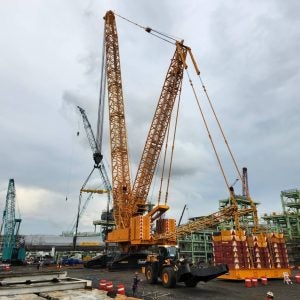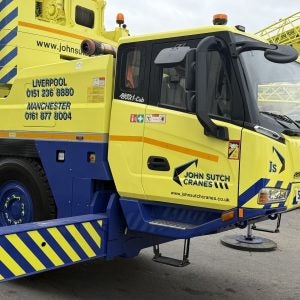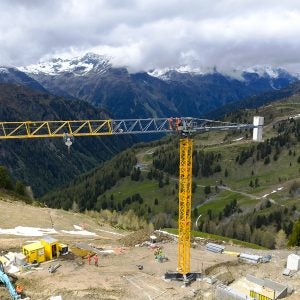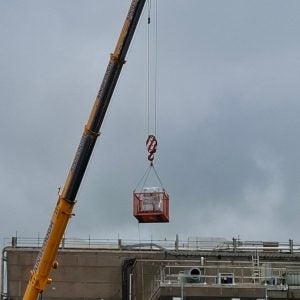Steve Filipov, the Terex vice president who is also now chairman of the managing board of German loader crane manufacturer Atlas Weyhausen, has decided to keep open two factories that Atlas had previously decided to close.
Atlas had announced in June that the factories in Löningen and Vechta were to shut to reduce costs by outsourcing more production. Atlas had planned to lay off 800 employees from its German based workforce as part of the scheme when the factories were closed. Despite the factories remaining open, 585 employees, mainly from head office, are still to be made redundant as part of a plan to “cut overheads” according to Filipov. Atlas employs 1,870 people, 1,499 of them based in German factories. The remainder are based in the UK where Atlas has a factory.
Marketing manager Gunter Steinbrecher explained that the original plan to close the two factories had been down to cost and that Atlas would have outsourced the components that were produced at Löningen and Vechta. Although Terex is only an adviser to Atlas Construction LLC, the new owners of Atlas Weyhausen, under new ownership ” Terex can implement ideas of its own in Atlas factories,” Steinbrecher said. Steve Filipov said that any plan, such as manufacturing cranes from the Terex range in the Atlas factories, had not yet been considered.
The Vechta plant will continue to make steel structures for excavators and cranes, as well as hydraulic cylinders; and Löningen will continue to make steel structures for excavators. At the other factories, Ganderkesee remains an assembly plant for excavators, and Delmenhorst continues to be the assembly plant for cranes and central administration of Atlas Weyhausen GmbH. Filipov said that there was still a chance that one of the factories may still close in the future, although he did not know which one.
The company also declared that its target under new ownership is “to become the market leader in all aspects of wheeled and road/rail excavators, material handlers as well as truck-loading cranes”.
The company set out its strategy as:
• maintenance of “German quality” (made in Germany) by in-house manufacturing of key components
• improvement of product service and distribution of spare parts0
• aggressive programme to reduce costs by means of targeted rationalisation in production and administration.






